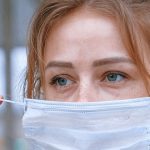Diphtheria is an infectious disease affecting the throat and airways, caused by the bacteria (corynebactium diphtheriae) producing a thick covering in the back of the throat. It can cause difficulty in breathing, heart failure, paralysis and can be fatal.
Where is it found?
Diphtheria if found all over the world. High immunization rates are required to keep the rate of infection low. It is still prominent in countries with low vaccination levels and can be found in the Indian Subcontinent, Central and South East Asia, Africa, South America, Eastern Europe, and Russia. Travellers visiting developing countries are at highest risk for diphtheria.
How is it transmitted?
Diphtheria is spread from person to person through coughing and sneezing. People with Diphtheria can be infectious for up to four weeks and people carrying the bacteria could be infectious for longer.
What are the symptoms?
It’s a serious illness and treatment is required as soon as possible. People carrying the bacteria who may not yet have symptoms can still infect others. The incubation time is 2-5 days. Most people will have a sore throat and a fever in the first few days. Mild cases may not develop any further, whereas severe case may develop breathing difficulties and lesions on the skin. Toxins may cause extensive organ damage. If not treated early the infection is lethal in 5-10% of cases. Fatality rates are higher in children and the elderly.
Is there treatment?
Intensive care will administer antitoxins and antibiotics. Some pople may required assisted breathing if the thick covering at the back of the throat is causing obstruction to the airway.
Prevention
The Diphtheria vaccine is highly effective and is included in childhood immunisations schedules in many countries. Mass immunisation has led to the reduction of the number of cases in Europe. The UK offers a combination vaccine called Revaxis that protects against diphtheria, polio and tetanus. Separate vaccines against the diseases are not available in the UK.
The vaccine is inactive, containing dead bacteria only.
Booster doses are recommended after 10yrs if you are visiting parts of the world where its considered high risk.
This combined vaccine can be given at the same time as any of the following vaccines: Hepatitis A, Typhoid, Hepatitis B, Rabies, Japanese encephalitis, Cholera vaccine and MMR combined vaccine.
Hygiene
It is important to try and stay healthy on holiday. Always be hygienic and clean when you are travelling. Wash your hands often with soap and water or use hand sanitiser. Try not to touch your face and make sure you cover your mouth when you cough or sneeze. Avoid close contact or sharing items with people who may be sick.
Travelling
Remember to talk to your doctor if you feel ill, especially if you have a fever and let them know about your travels.
You should make sure you and your children are up-to-date with your routine vaccinations before travelling. Diphtheria is just one illness that you can be vaccinated against. Others include: Cholera, Hepatitis A, Hepatitis B, Japanese encephalitis, Meningitis, Measles, mumps and rubella, Polio, Rabies, Tetanus, Tick-borne encephalitis, Tuberculosis and Typhoid, Yellow fever. Use our vaccine checker tool to find out what you may need.
DocHQ Ltd is a Health Tech company improving choices. We help you connect efficiently to health support and advice whether you are at home, work or travelling. See our website for our services or call us on 0330 088 0645.



